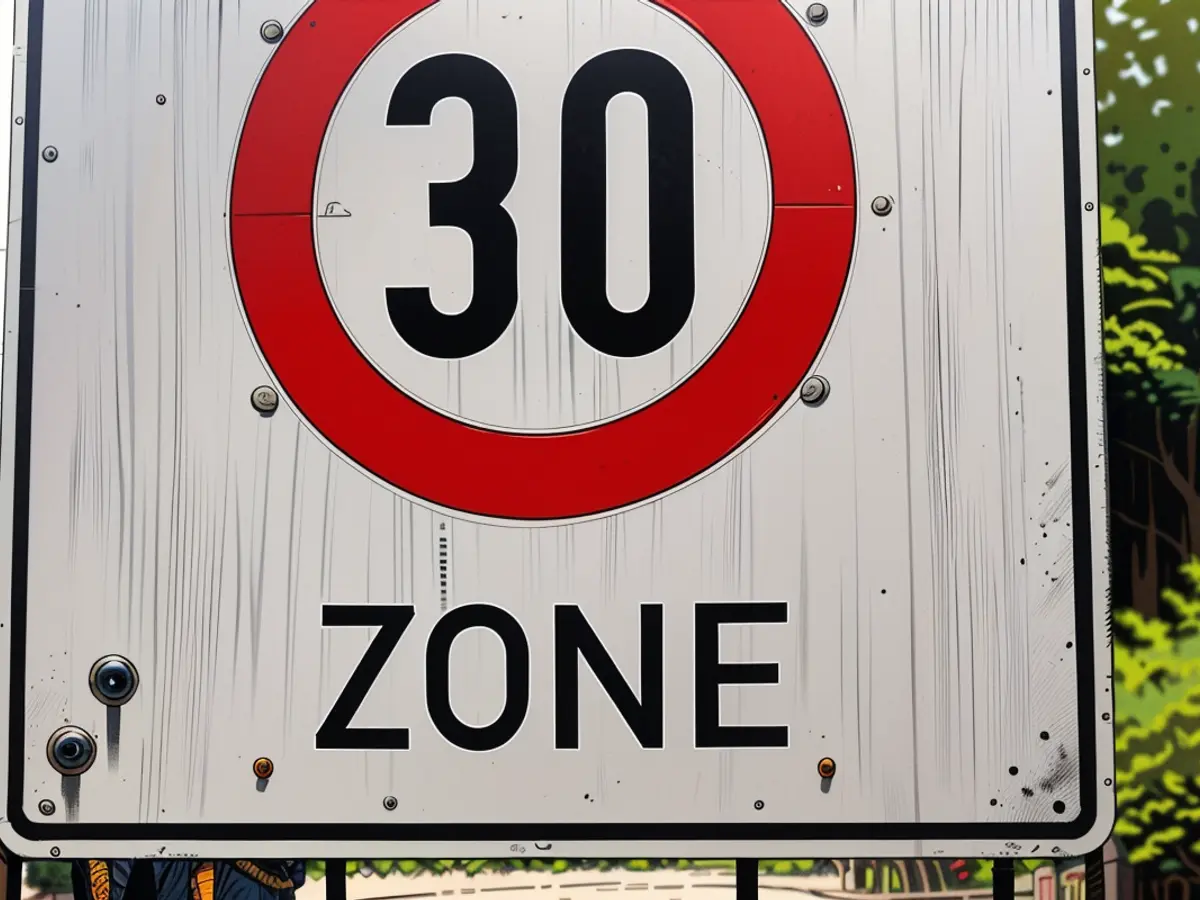- The Hamburg administration advocates for extending the 30 km/h speed limit to major thoroughfares.
Hamburg's Red-Green Senate Ponders Boosting 30 km/h Limit to combat Noise Pollution in Busy Streets.
In a bid to combat noise pollution, Hamburg's Red-Green Senate is contemplating extending the speed limit to 30 km/h on particularly bustling streets. This move will be effective at night on 41 multi-lane street sections where noise levels top 60 decibels, as per Environment Senator Jens Kerstan (Greens). Essentially, this translates to the noise level of a lawnmower when positioned 10 meters away.
Earlier, nighttime speed restrictions of 30 km/h have been instituted on 28 street sections. The Senate's decision on this matter, part of its noise action plan, was announced on Tuesday. The public is scheduled to voice their opinions in September, with a final vote by the Senate likely in December.
Kerstan: "Hamburg's Noise Problem Cannot Be Overlooked"
Senator Kerstan stressed that Hamburg's noise issue is not to be disregarded. He attributed this issue primarily to road traffic, which exerts a significant impact on individuals' health, especially at night. Kerstan explained that if a noise level of 55 decibels is surpassed at night, deep, restorative sleep becomes impossible.
Based on available data, approximately 184,500 Hamburg residents are exposed to noise levels exceeding 65 decibels during the day, equivalent to the volume of a typical TV set. At night, this figure swells to about 215,000 individuals whose exposure surpasses 55 decibels. Noise pollution also impacts 5,300 and 9,400 people for rail traffic, respectively, and 2,100 and 1,500 people for air traffic. Kerstan mentioned that the number of people affected by air traffic noise would be significantly higher if pedestrians in Schleswig-Holstein and Lower Saxony were included.
Kerstan expressed dissatisfaction over the expiration of the voluntary funding program for passive noise protection against aircraft noise in 2022 due to financial constraints. He stressed that this situation cannot be sustained in the long term. Despite the unsuccessful negotiations with the SPD-led economic authority for new fees in the event of nighttime delays, Kerstan anticipates that a new Senate will tackle this issue following the 2025 state election.
CDU: "30 km/h Speed Limit Backdoor Introduction"
Stephan Gamm, the environmental spokesperson for the CDU parliamentary group, criticized the SPD and Greens for using the noise action plan presented that day to covertly introduce a 30 km/h city-wide speed limit. He argued that Hamburg, as a commercial city, relies on efficient main traffic arteries. Gamm contends that the expansion of 30 km/h sections could inadvertently divert traffic from primary traffic arteries to quiet residential areas.
The AfD environmental expert Thomas Reich contended that the plans were merely a facade to further restrict car traffic.
BUND: "Kerstan and Senate Less Active Regarding Noise Protection"
Environmental organization BUND criticized Kerstan and the Senate for their lack of assertiveness in addressing noise protection. BUND state manager Lucas Schäfer claimed that noise protection is a multi-faceted task that touches upon health, environment, urban development, and quality of life. He urged Mayor Peter Tschentscher (SPD) to take charge of the issue. Schäfer argued that the Senate must seize the opportunity to champion progressive mobility politics for Hamburg with significant public backing for noise protection.
Beyond the introduction of new 30 km/h zones, Kerstan also intends to boost the number of designated 'quiet areas' from 15 to 17. These areas, spanning at least 50 hectares, will prohibit any development leading to noise pollution. Included in this expansion are the Hinschenfelde and Tonndorf cemeteries, along with the adjacent Wandse green space, and the Jenfelder Moorpark.
- The environmental concerns surrounding noise pollution in Hamburg, as highlighted by Environment Senator Jens Kerstan, led him to emphasize that the issue stemming from road traffic significantly impacts residents' health, particularly at night.
- To combat noise pollution and promote a healthier environment, Kerstan suggested extending the speed limit to 30 km/h on bustling streets, targeting areas with excessive noise levels and aiming to improve the quality of life for residents.








